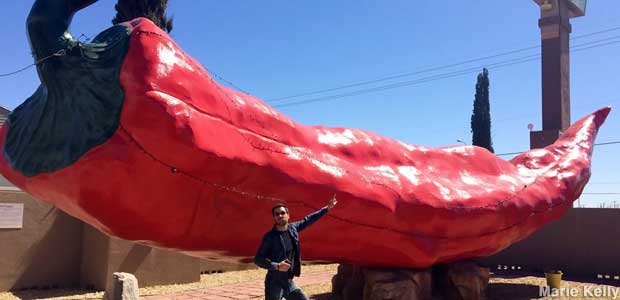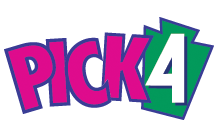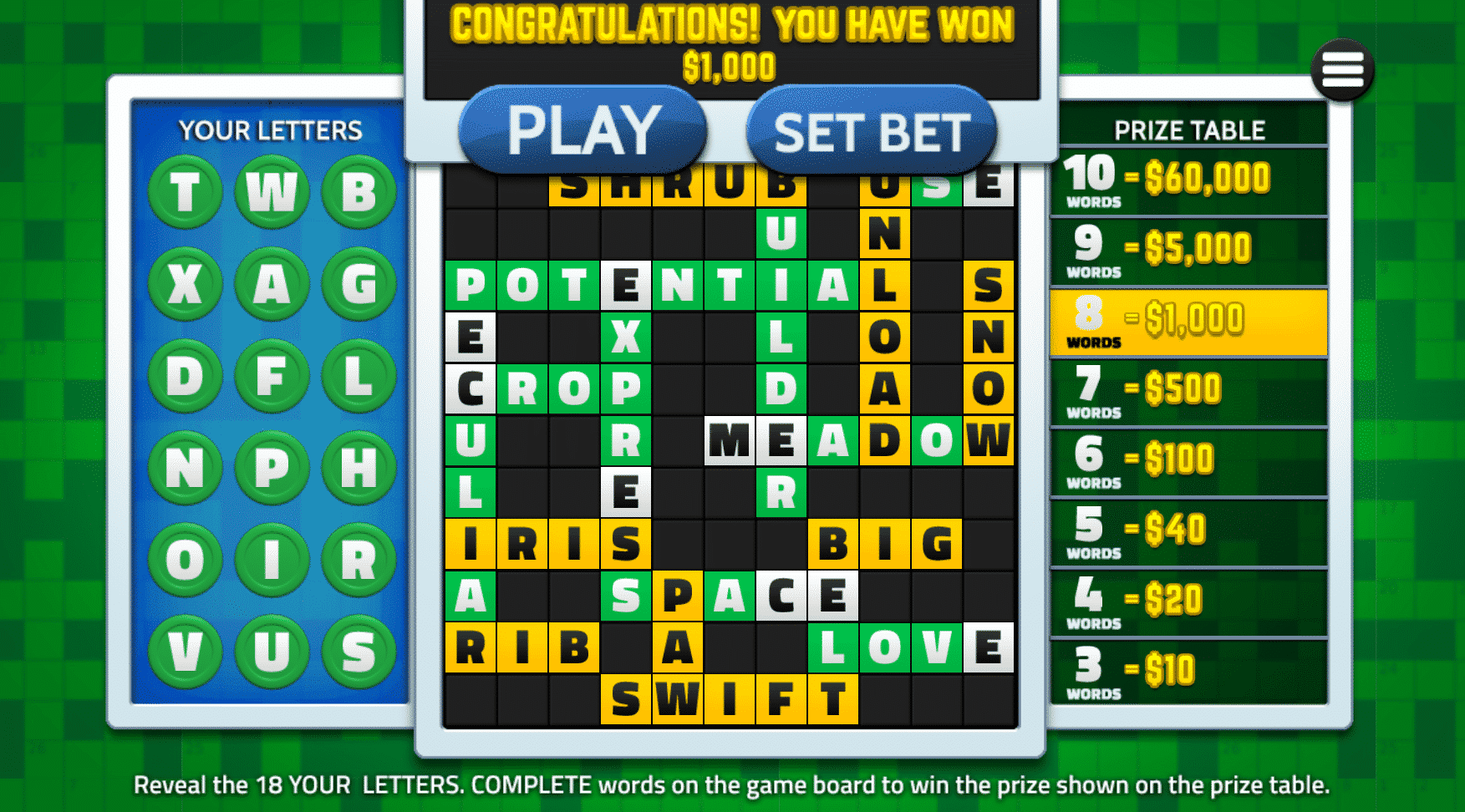- Us Lottery Past Results
- Past Pa Powerball Lottery Numbers
- Palottery State Pa Us Lottery
- Us Lottery Payments
- Us Lottery Program
- Us Lottery Picture
The proceeds of the Pennsylvania Lottery are used all around Pennsylvania to support programs for older Pennsylvanians. The Pennsylvania Lottery benefits older Pennsylvanians. Choose your numbers on a play slip or let the lottery terminal randomly pick your numbers. The Powerball jackpot grows until it is won. Players win a prize by matching one of the 9 Ways to Win. Powerball is played in 45 states, Washington DC, Puerto Rico and the US.
In the United States, lotteries are run by 48 jurisdictions: 45 states plus the District of Columbia, Puerto Rico, and the U.S. Virgin Islands.
Lotteries are subject to the laws of and operated independently by each jurisdiction, and there is no national lottery organization. However, consortiums of state lotteries jointly organize games spanning larger geographical footprints, which in turn, carry larger jackpots. Two major lottery games, Mega Millions and Powerball, are both offered in nearly all jurisdictions that operate lotteries, and serve as de facto national lotteries.
In fiscal 2018, Americans spent $77.7 billion on various lotteries, up about $5 billion from 2017.[1]
History[edit]

Historian Neal Millikan using newspaper advertisements in the colonial era found at least 392 lotteries were held in the 13 colonies.[2]
Lotteries were used not only as a form of entertainment but as a source of revenue to help fund the colonies. The financiers of Jamestown, Virginia, for instance, funded lotteries to raise money to support their colony.[3] These lotteries were quite sophisticated for the time period and even included instant winners.[3] Not long after, each of the 13 original colonies established a lottery system to raise revenue.[3]
In the early post-independence era, legislators commonly authorized lotteries to fund schools, roads, bridges, and other public works.[4] Evangelical reformers in the 1830s began denouncing lotteries on moral grounds and petitioned legislatures and constitutional conventions to ban them.[5] Recurring lottery scandals and a general backlash against legislative corruption following the Panic of 1837 also contributed to anti-lottery sentiments.[5] From 1844 to 1859 alone, 10 new state constitutions contained lottery bans.[5] By 1890, lotteries were prohibited in every state except Delaware and Louisiana.[6]
Lotteries in the United States did not always have sterling reputations. One early lottery in particular, the National Lottery, which was passed by Congress for the beautification of Washington, D.C. and was administered by the municipal government, was the subject of a major U.S. Supreme Court decision – Cohens v. Virginia.[7]
The lottery never paid out,[3][clarification needed] and it brought to light the prevalent issue of crookedness amongst the lotteries in the United States. The wave of anti-lottery protests finally broke through when, by 1860, all states had prohibited lotteries except Delaware, Missouri, and Kentucky.[3] The scarcity of lotteries in the United States meant that tickets were shipped across the country and eventually led to the creation of illegal lotteries.[3] In 1868, after years of illegal operation, the Louisiana State Lottery Company obtained a 25-year charter for its state lottery system.[3] The charter was passed by the Legislature due to immense bribing from a criminal syndicate in New York.[3] The Louisiana Lottery Company derived 90% of its revenue from tickets sold across state borders.[3] These continued issues of corruption led to the complete prohibition of lotteries in the United States by 1895.[3] It was discovered that the promoters of the Louisiana Lottery Company had accrued immense sums of money from illegitimate sources and that the Legislature was riddled with bribery.[3] Before the advent of government-sponsored lotteries, many illegal lotteries thrived, such as number games.
Modern era[edit]
The first modern government-run US lottery was established in Puerto Rico in 1934.[8] This was followed, decades later, by the New Hampshire lottery in 1964.Instant lottery tickets, also known as scratch cards, were introduced in the 1970s and have become a major source of lottery revenue. Individual lotteries often feature three-digit and four-digit games akin to numbers games; a five number game, and a six number game (the latter two often have a jackpot.) Some lotteries also offer at least one game similar to keno, and some offer video lottery terminals. Presently, many US lotteries support public education systems.
As of November 2019, lotteries are established in 45 states, the District of Columbia, Puerto Rico, and the U.S. Virgin Islands; the most recent U.S. state to legalize a lottery is Mississippi, with lottery commission members receiving appointments on October 19, 2018.[9]
The first U.S. multi-state lottery game was formed in 1985 in Maine, New Hampshire, and Vermont; its flagship game remains Tri-State Megabucks. In 1988, the Multi-State Lottery Association (MUSL) was formed with Iowa, Kansas, Missouri, Oregon, Rhode Island, West Virginia, and the District of Columbia as its charter members; it is best known for Powerball, which was designed to create large jackpots. Another joint lottery, The Big Game (now called Mega Millions) was formed in 1996 by six lotteries as its charter members.
As of October 2020, each of the 44 state lotteries offer both Mega Millions and Powerball as a result of a 2009 agreement between the Mega Millions consortium and MUSL to cross-license their game to one another's members, although the two organizations continue to administer Mega Millions and Powerball separately. Mississippi was the most recent to join both, beginning sales in January 2020. Puerto Rico is the only jurisdiction not to offer both, as they do not offer Mega Millions.
State revenues[edit]
State lotteries have become a significant source of revenue for states, raising $17.6 billion in profits for state budgets in the 2009 fiscal year (FY) with 11 states collecting more revenue from their state lottery than from their state corporate income tax during FY2009.[10]
Lottery policies within states can have conflicting goals.[11] Given that instructions are passed down from state legislatures, lottery implementation is often expected to be carried out with reduced advertising and funding while still producing the same amount of revenue.[11] This issue led states to look for loopholes in the system. Massachusetts, for example, had its advertising budget dramatically cut, and therefore started using free-play coupons as money to pay for advertising.[11] This led to an IRS investigation into alleged non-reporting of income because the IRS considered the coupons to have monetary value.[11]
Us Lottery Past Results
States with no lotteries[edit]
Among the states that do not have lotteries, Alabama and Utah cite religious objections.[12]Nevada's lucrative gambling industry has lobbied against a state lottery there, fearing the competition;[13] similarly, the Mississippi Gaming Commission expressed concern that a state lottery would constitute a 'competing force' for gambling dollars spent at Mississippi casinos. Despite this, in August 2018, Mississippi passed legislation to create a state lottery. GovernorPhil Bryant expressed his support for the lottery to fund transportation in the state and has indicated he will sign the bill. Sales, initially only scratch tickets, began on November 25, 2019. Mega Millions and Powerball tickets became available to the state on January 30, 2020.[14]
Alaska and Hawaii, being outside the contiguous United States, have not felt the pressure of losing sales to competitors.[12] However in February 2020, Alaska's governor Mike Dunleavy introduced legislation proposing the establishment of an Alaska Lottery Corporation, as part of an effort to overcome a budgetary deficit.[15]
New technologies[edit]

In recent years, new applications such as Lottery.com and Jackpocket were created for people to purchase lotteries over their smartphones.[16]

U.S. lotteries[edit]
| State or Territory | Lottery | Year of First Ticket Sales | Other Joint Games |
|---|---|---|---|
| Alabama | No | – | – |
| Alaska | No | – | – |
| Arizona | Yes | 1981 | 0 |
| Arkansas | Yes | 2009 | LFL |
| California | Yes | 1985 | 0 |
| Colorado | Yes | 1983 | LFL |
| Connecticut | Yes | 1972 | LFL |
| Delaware | Yes | 1974 | LA, LFL |
| District of Columbia | Yes | 1982 | LFL |
| Florida | Yes | 1988 | C4L |
| Georgia | Yes | 1993 | C4L |
| Hawaii | No | – | – |
| Idaho | Yes | 1989 | LA, LFL |
| Illinois | Yes | 1974 | 0 |
| Indiana | Yes | 1989 | LFL |
| Iowa | Yes | 1985 | LA, LFL |
| Kansas | Yes | 1987 | 2by2, LA, LFL |
| Kentucky | Yes | 1989 | LFL |
| Louisiana | Yes | 1991 | 0 |
| Maine | Yes | 1974 | LA, LFL, TSM |
| Maryland | Yes | 1973 | C4L |
| Massachusetts | Yes | 1971 | LFL |
| Michigan | Yes | 1972 | LFL |
| Minnesota | Yes | 1988 | LA, LFL |
| Mississippi | Yes | 2019 | 0 |
| Missouri | Yes | 1986 | LFL |
| Montana | Yes | 1986 | LA, LFL |
| Nebraska | Yes | 1993 | 2by2, LFL |
| Nevada | No | – | – |
| New Hampshire | Yes | 1964 | LFL, TSM |
| New Jersey | Yes | 1969 | C4L |
| New Mexico | Yes | 1996 | LA |
| New York | Yes | 1967 | C4L |
| North Carolina | Yes | 2005 | LFL |
| North Dakota | Yes | 2004 | 2by2, LA, LFL |
| Ohio | Yes | 1974 | LFL |
| Oklahoma | Yes | 2005 | LA, LFL |
| Oregon | Yes | 1985 | 0 |
| Pennsylvania | Yes | 1972 | C4L |
| Puerto Rico | Yes | 1934 | 0 |
| Rhode Island | Yes | 1974 | LFL |
| South Carolina | Yes | 2002 | LFL |
| South Dakota | Yes | 1987 | LA, LFL |
| Tennessee | Yes | 2004 | C4L, LA |
| Texas | Yes | 1992 | 0 |
| Utah | No | – | – |
| U.S. Virgin Islands | Yes | 1937 | 0 |
| Vermont | Yes | 1978 | LFL, TSM |
| Virginia | Yes | 1988 | C4L |
| Washington | Yes | 1982 | 0 |
| West Virginia | Yes | 1984 | LA |
| Wisconsin | Yes | 1988 | 0 |
| Wyoming | Yes | 2013 | LFL |
- Key
2by2 = 2by2
C4L = Cash4Life
LA = Lotto America
LFL = Lucky for Life
TSM = Tri-State Megabucks consortium
0 = only multi-jurisdictional games are Mega Millions and/or Powerball
Other joint U.S. lotteries[edit]
These games also are offered by multiple lotteries.[17] Some of these games feature a shared progressive jackpot (noted by °):
- 2by2 (3 lotteries): Kansas, Nebraska, North Dakota
- Cash4Life (9): Florida, Georgia, Indiana, Maryland, New Jersey, New York, Pennsylvania, Tennessee, Virginia
- Lotto America° (13): Delaware, Idaho, Iowa, Kansas, Maine, Minnesota, Montana, New Mexico, North Dakota, Oklahoma, South Dakota, Tennessee, West Virginia
- Lucky for Life (26): Arkansas, Colorado, Connecticut, Delaware, District of Columbia, Idaho, Iowa, Kansas, Kentucky, Maine, Massachusetts, Michigan, Minnesota, Missouri, Montana, Nebraska, New Hampshire, North Carolina, North Dakota, Ohio, Oklahoma, Rhode Island, South Carolina, South Dakota, Vermont, Wyoming
- Tri-State Lottery (Megabucks Plus°, Pick 3 (Day & Night), Pick 4 (Day & Night), Fast Play°): Maine, New Hampshire, Vermont
See also[edit]
References[edit]
- ^Horton, Alex (October 18, 2018). 'How Mega Millions and Powerball changed the odds to create monster jackpots'. The Washington Post. Retrieved October 19, 2018.
- ^Millikan, Neal (2011). Lotteries in Colonial America. Routledge. p. 2.
- ^ abcdefghijkRoger Dunstan (January 1997). 'History of Gambling in the United States'. Archived from the original on September 10, 2010.
- ^McMaster, John Bach (1911). A History of the People of the United States: From the Revolution to the Civil War. Appleton and Company. p. 588.
- ^ abcSzymanski, Ann-Marie E. (2003). Pathways to Prohibition: Radicals, Moderates, and Social Movement Outcomes. Duke University Press. pp. 95–96. ISBN978-0-8223-3169-8.
- ^John Houston Merrill; Charles Frederic Williams; Thomas Johnson Michie; David Shephard Garland (1890). The American and English Encyclopædia of Law: Least to Mail. Edward Thompson Company. p. 1172.
- ^Jean Edward Smith, John Marshall: Definer Of A Nation, New York: Henry Holt & Company, 1996, pp. 456-459
- ^'Ley Núm. 74 de 2006 -Ley del Programa de Ayuda a Jugadores Compulsivos de Puerto'. Lexjuris.com. Retrieved July 26, 2012.
- ^Howard, Morgan. 'Gov. Bryant appoints MS Lottery Corporation board of directors'. wlox.com. Retrieved October 22, 2018.
- ^'U.S. lotteries and the state taxman'. Reuters. July 15, 2011.
- ^ abcdNGISC (August 3, 1999). 'National Gambling Impact Study Commission Lotteries'.
- ^ ab'Five states that don't have lotteries'. Playport. July 30, 2019. Retrieved November 26, 2019.
- ^'Knowing Vegas: Why doesn't Nevada have a state lottery?'. Las Vegas Review-Journal. April 11, 2014. Retrieved January 8, 2020.
- ^'Mississippi lottery bill passes House, headed to governor'. WAPT. Associated Press. Retrieved August 29, 2018.
- ^Maguire, Sean. 'Governor proposes independent corporation to run an Alaska lottery'. ktuu.com. Retrieved May 26, 2020.
- ^'Jackpocket App Allows You to Buy Lottery Tickets Using Your Phone'. ABC News. September 29, 2015.
- ^'Games'. Multi-State Lottery Association. Archived from the original on May 19, 2016. Retrieved May 7, 2016.
Further reading[edit]
- Dasgupta, Anisha S. 'Public Finance and the Fortunes of the Early American Lottery.' QLR 24 (2005): 227+ Online
- Millikan, Neal. Lotteries in Colonial America (2011). excerpt
- Watson, Alan D. 'The Lottery in Early North Carolina.' North Carolina Historical Review 69.4 (1992): 365-387. Online
In December 2011, the US Department of Justice released a legal opinion on the Federal Wire Act. The opinion stipulated the act only applies to sports betting.
This ultimately paved the way for individual states to allow lottery sales online. Since that time, five states have started online lottery sales programs. A handful of others are considering the idea.
- Green states have passed online lottery bills.
- Red states had online lottery, but suspended sales.
- Blue states had an online lottery bill in 2017.
Pennsylvania
Pennsylvania passed an expansive gambling law in October 2017. As part of the sweeping measure, the state authorized online casinos, online poker, and online lotteries. The first batch of online lottery games went live on May 29, 2018.
Pennsylvania currently participates in both Powerball and the MegaMillions lotto. These games are not available online yet. Instead, the only online offerings are instant win games. These online games are very similar to a real-life scratch-off game.
As part of the expansion, the Lottery also offers Keno, which also launched in May. It offers virtual sports as well.
Lawmakers hope over the course of the next five years, the lottery will bring the state roughly $250 million in revenue to primarily benefit the state’s seniors. However, legal troubles could sideline the project. Seven PA casinos banded together to sue the state over the iLottery, claiming the instant games are too similar to online slot machines.
Read more about the Pennsylvania Online Lottery.
Michigan
After a successful pilot program in the summer, the Michigan Lottery launched online lottery sales in the fall of 2014. At first, the online games available online were only Instant Keno and electronic online scratch-offs.
In January 2016, the Michigan Lottery began offering online sales tickets for its most popular draw games, including Powerball, Mega Millions, Lotto 47, and Fantasy 5.
Lottery Consultant Digital Gaming Group released a report in December 2016 calling Michigan’s online lottery sales program a success. The report showed online lottery sales moved past $8 million a week as of March 2016. Meanwhile, brick and mortar retail lottery operations set all-time records.
Read more about the Michigan Online Lottery.
Georgia
After approval in the summer of 2012, and a bit of a false start, Georgia became the second state to offer online lottery ticket sales. Its lottery went online in November 2012. The Georgia Lottery Corporation offers online ticket sales for draw games, including Fantasy 5, Mega Millions, and Powerball.
Plus, there are also Keno games and a selection of games exclusive to Georgia Lottery website called Diggi Games. These interactive games constitute a hybrid of social games and electronic scratch-offs. Diggi Games include crosswords and bingo games.
Georgia is among the top states in the country in terms of per capita lottery sales. The state maintained that status through the introduction of online ticket sales.
Read more about the Georgia Online Lottery.
Illinois
Illinois launched a pilot program offering online sales of Lotto and Mega Millions tickets in March 2012. At that point, Illinois became the first state to offer online lottery ticket sales.
Illinois then added online tickets to the popular multi-state Powerball lottery in December 2012. The Illinois Lottery website later expanded to include Daily Lottery Games and Instant Games as well.
On March 31, 2014, the Internet Lottery announced online lottery sales totaled $36.9million in the first two years of the program.
Then, in March 2016, the pilot program was actually set to end if lawmakers failed to pass new legislation authorizing continued internet lottery sales. However, Illinois Lottery Communications Director Steve Rossi decided the Illinois Lottery would continue to operate online. After a detailed policy and law review, Rossi determined continued internet ticket sales were permissible under current law.
Read more about the Illinois Online Lottery.
Past Pa Powerball Lottery Numbers
Virginia
The Virginia Lottery has operated in Old Dominion since 1987, resulting in over $12.4 billion in payouts since that time. Now, Virginia has seen online expansion with its lottery.
Palottery State Pa Us Lottery

While also tasked with overseeing recently legalized online casinos and sports betting, the Virginia Lottery introduced online instant games in July 2020, allowing players to purchase and even play online lottery games through the Virginia Lottery website. Access to these game via the lottery’s app should become available soon.
The Virginia Lottery boasts an array of online instant games, with themes ranging from simple reveal to crosswords to symbol-matching, not to mention blackjack, keno and lottery draw.
As the first online gambling site in the state, the Virginia Lottery has set the trend. And it is at the forefront of an online gambling revolution in Old Dominion.
Read more about the Virginia Online Lottery.
New Hampshire
New Hampshire joined the group of US states with online lottery after its governor signed a bill authorizing online lottery sales in July 2017. On Sept. 18, the New Hampshire online lottery went live. Operated by NeoPollard Interactive, it features several online instant win and draw games.
Mega Millions and Powerball tickets can be purchased online or through apps like Jackpocket, with either custom or quick number selection.
Kentucky
Kentucky became the next state to offer its lottery online in April 2016. The Commonwealth offers online sales of jackpot and daily draw games as well as instant play games.

Online ticket sales were actually approved by lawmakers in 2013. However, it took the state three years to develop a complex online ticketing system.
Us Lottery Payments
Kentucky also employs strict security regulations preventing players from withdrawing money deposited in a lottery account in accordance with money-laundering laws.
Us Lottery Program
At the time of the launch, Kentucky Lottery President and CEO Arch Gleason claimed online lottery sales were a way to attract a younger demographic accustomed to conducting retail purchases online. He also maintained online sales were expected to help, rather than hurt, sales at 3,200 lottery retailers across Kentucky.
Read more about the Kentucky Online Lottery.
Minnesota
Minnesota was actually the first state lottery to offer instant-win games online. The Minnesota Lottery launched online sales on the first quarter of 2014 without any kind of legislative approval. In addition to electronic scratch-offs, the lottery offered Mega Millions, Hot Lotto, Gopher 5, and Powerball tickets online.
Us Lottery Picture
However, in May 2015, Minnesota lawmakers voted to make online lottery sales illegal, and the games were ultimately pulled.
